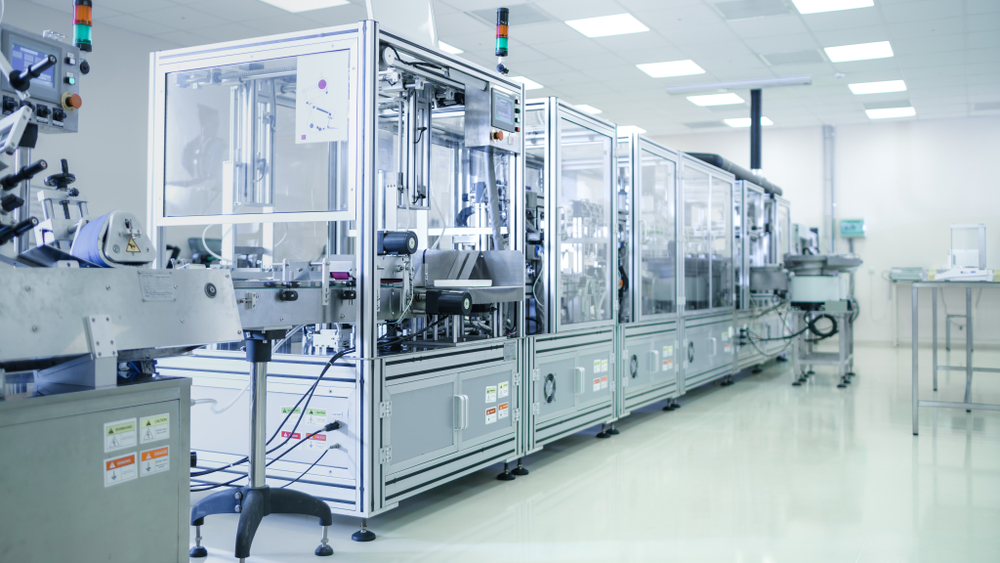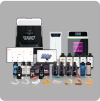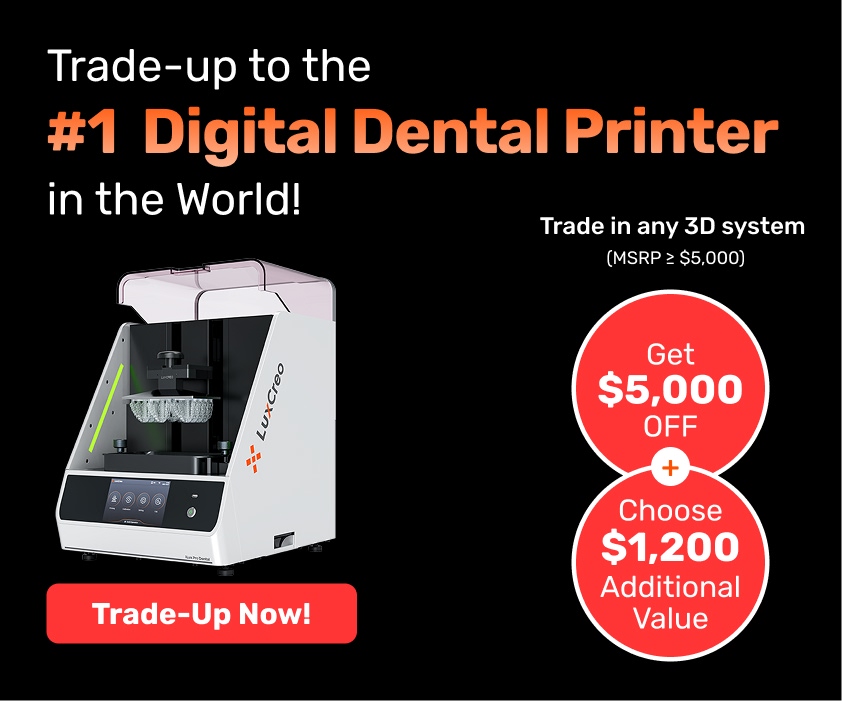
How an Integrated Smart Factory 3D Rapid Prototyping Service Can Accelerate Manufacturing
Historically, 3D printing has long held a close association with rapid prototyping. When 3D printers first entered the market in the early 1980s, companies primarily used them as rapid prototyping machines. Today, rapid prototyping remains a 3D printing specialty, with companies able to prototype onsite or access the latest 3D printing technology, prototyping, and small or large volume production service through service bureaus and 3D printer-filled Smart Factories.
Both service bureaus and Smart Factories help companies swiftly move products across design stages. Beyond speed, 3D rapid prototyping services are also more cost-effective and versatile than alternatives like CNC machining. Here’s how companies can benefit from partnering with a 3D rapid prototyping service:

What Integrated 3D Rapid Prototyping Services Can Do For You
Rapid prototyping is a process by which manufacturers quickly create parts, models, and assemblies from CAD files to evaluate product parameters that include aesthetics, functionality, color, and surface finish. The most popular rapid prototyping methods include CNC machining and 3D printing. Both methods have their strengths and weaknesses, but a growing number of manufacturers see 3D printing as a more versatile, faster, and cost-effective approach.
Smart Factory 3D printers and production services continue to simplify prototyping and volume production manufacturing by reducing the skilled labor requirements for 3D printing prototypes and production parts. Accessing lower-skilled labor expands the labor pool available to support prototyping and manufacturing while shorter production times, greater design freedom, and less waste than traditional 3D printing and CNC machining make manufacturing viable in traditionally higher labor cost countries. Expanding the potential labor force able to support prototyping and volume manufacturing makes Smart Factory 3D printing an essential capability for manufacturers and brands to innovate and manufacture globally like never before.
Smart Factory 3D printing, prototyping, and volume production services offer the following benefits to their partners:
- On-Demand Smart Factory Production Allows Fast Innovation through Volume Production: Companies use Smart Factory 3D printers to quickly develop new innovative products onsite. After evaluating and testing many prototypes on their Smart Factory 3D printer, companies send their small batch to large volume production orders to Smart Factories for production, leveraging a single platform on-demand production service. Companies get to market faster than CNC machining, traditional 3D printing, or Service Bureau production service due to the integrated link between their Smart Factory 3D printers and globally accessible Smart Factory production services.
- Smart Factory 3D Printers Expand Expands Labor Pool: Smart Factory 3D printers deliver integrated solutions, ensuring every step of the prototyping and production process is refined, fast, and repeatable. Smart Factory 3D printers simplify the 3D printing process to a point where low-skilled labor can quickly support innovation and production. Compared to CNC milling, new operators can be trained to use Smart Factory 3D printers in days, whereas CNC milling takes months to years to be effective.
- Multiple Synchronous Runs: 3D printing is a tooling-free production method. Accordingly, 3D printers may create multiple prototype variations in a single batch. Each batch can contain multiple prototypes with slight variations in mechanical properties and aesthetic features, enabling designers to compare potential product designs easily. By running various iterations in parallel, companies move quickly through the innovation cycle.
- Material Diversity: 3D printers have access to a range of strong, durable materials. Companies can experiment with multiple materials to determine which will best suit the final product during rapid prototyping. 3D printers utilize the same process to create functional prototypes and final products. Companies take advantage of this ability by producing fully functional prototypes for testing. Once achieving a final design, the product can immediately go into production.
- Low Cost: When companies use 3D printing for rapid prototyping, they save on tooling and machine setup costs. For prototype batches, 3D printers do not require the workpiece to be reoriented during production regardless of the geometry. With CNC milling, one often needs to change the machine’s setup to account for the part’s geometry. Companies using a 3D printer instead of a CNC mill can reduce labor costs and shorten prototype turnaround time.
Service Bureau or Integrated Smart Factory Platform?
Both service bureaus and Smart Factories provide access to 3D-printer-powered rapid prototyping. However, they differ in a few significant ways. Deciding which option will work best for you requires a clear understanding of your future production goals.
To determine which 3D rapid prototyping service is the right choice, ask these questions:
- Is the product going to be printed or manufactured conventionally? Smart Factory 3D printers offer full-scale innovation production capabilities, while service bureaus primarily focus on rapid prototyping. If a company plans to start production as soon as possible and wants to 3D print in production, smart factories are the right path. Smart factories have a factory of the same or similar 3D printers, use the same software, processes, and procedures, and leverage a scaled workforce and supply chain to create final prototypes and products. Accordingly, partnering with a Smart Factory provides instant access to consistent and scalable production. If a company prefers to use traditional production methods like injection molding but simply needs a prototyping partner, service bureaus will better suit those needs.
- Are agile production capabilities critical? One of 3D printing’s strengths lies in its production agility. The lack of tooling and minimal setup time requirements allow companies to use their Smart Factory 3D printers to quickly evaluate designs ready for production or order parts from Smart Factories and receive them promptly. Design changes are also simple to implement. Designers simply change the CAD file, print it themselves, or submit it to a Smart Factory. Service bureaus are not able to support on-demand innovation through production services. Service bureaus offer fast prototyping but require an engineering engagement and a 3D printing technology selection process that add cost and time to the prototyping process. Service Bureau production is limited since they have few of any single type of 3D printing technology and require minimum order quantities (MOQs) to purchase enough 3D printers of a single technology, hire enough people, and develop the supply chain to support the volume production order. These limitations slow service bureaus’ ability to support innovation through volume production requests, add high costs and steps to support and require large financial commitments from companies to get to market.
- How important is design freedom? The tooling-free nature of 3D printers grants designers a high degree of flexibility and unparalleled customization possibilities. When companies partner with smart factories, they can leverage 3D printing’s design abilities and create limited edition variants or custom products. Without the need for tooling, designers can also quickly alter designs in response to market feedback. Conventional production methods, like CNC and injection molding, are much more restrictive by comparison. Although one can use service bureaus to arrive at a final design, once a factory finishes tooling for production, alteration possibilities are minimal.
Beyond Smart Factories’ on-demand innovation through production services and service bureaus prototyping, companies can also obtain their own Smart Factory 3D printers to bring rapid prototyping and production in-house. Utilizing an in-house Smart Factory 3D printer provides a way for companies to accelerate their innovation cycle by increasing the number of evaluated designs and reducing turnaround time to quickly bring the best product to market at scale.
Improve Your Product Development with Integrated LuxCreo Smart Factory 3D Printers and Services
To access 3D rapid prototyping services; companies can partner with a service bureau until the innovation cycle is complete. However, for companies that want a streamlined path toward full production, smart factories provide more control and production advantages.
LuxCreo’s Smart Factory 3D printers combined with Smart Factory production service provide companies everything they need to quickly develop initial prototypes all the way through volume production. Our manufacturing experts advise, design and manufacture over a million 3D printed production products and prototypes per year. Companies leverage this experience to accelerate their innovation process and transform their initial designs into production-ready parts within days and weeks. With strong design and engineering skills combined with unique business models, LuxCreo supports distributed manufacturing, parallel prototyping, in-house testing, globally scaled supply chain to help you take your ideas from concept to production at a rapid pace. Contact LuxCreo today to get started.
For more information on 3D rapid prototyping services or to inquire about Smart Factory partnership opportunities, visit our contact page or call (650) 336-0888.
Subscribe to Our Newsletter
Be the first to get our latest updates and free trials!
Popular Resources
Follow Us
Featured Products

4D Aligner™
First Smart ActiveMemory™
Aligner

iLux Pro Dental Solution
Ultimate 1-Click Dental
Application Solution

LuxCloud Dental
Your One-stop Digital Dentistry
Platform

